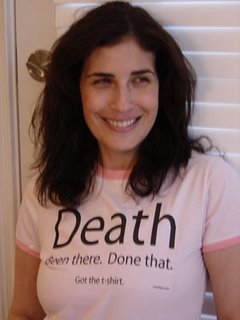The Holocaust--Just another Postmodern Invention?
Up until now, it was unnecessary in the West, outside of Germany and Austria, to pay serious attention to those who disputed the historicity of the Holocaust: they constituted a tiny fringe group, and dismissing their views had little political risks or consequences. They could simply be shrugged off as quacks, at best, and crypto-Nazis, at worst. But this recent wave of Holocaust denial is not coming from a statistically insignificant potion of the West; it is coming from Muslim leaders with popular followings, and what is even more troublesome, it is not being challenged by others in the Muslim community. As the head of the Simon Wiesenthal Center said, "The problem is that so far in the Arab world, very few leaders are willing to tell their own people that they have to understand that the Holocaust did take place” -- a statement that is putting it very mildly, indeed.
Are we dealing here with simply two different but equally legitimate points of view of what happened to the Jews under Nazi Germany; or are we dealing with a new ideological virus, and one that is on the verge of spreading like an epidemic?
We in the West have already rewritten a great deal of history in the name of cultural tolerance and diversity. But are we prepared to deny the truth of the Holocaust in the name of the same principles?
Have you noticed that as time goes on and people start to forget the horror of tragedy that the mind tends to rewrite the past? Perhaps this is human--for example, a family member dies and we rewrite their life to fit into our own scheme of how we feel about our own lives. If Dad was a fairly pleasant guy, we might overstate how cruel he was to keep ourselves from grieving. But on the other hand, if Dad was downright cruel and abusive, we might rewrite history in our minds to make him out to be a good guy. Either way of thinking puts our mind at ease and gives us the opportunity to feel virtuous about ourselves. In the case of these Muslim leaders with dementia times two, we have a case where they use the denial of the Holocaust as a tool for provoking sympathy from the West and anger in their followers in the Mideast. What better way to further their cause. But can we really allow them to use the bodies of six million corpses to make a political point?
Update: Ed Driscoll has more thoughts--be sure and read the information on political science Professor Sindi who has taught in the past at UC Irvine and Cal State Pomona--and who believes in the Holocaust Denial and is teaching American students.



